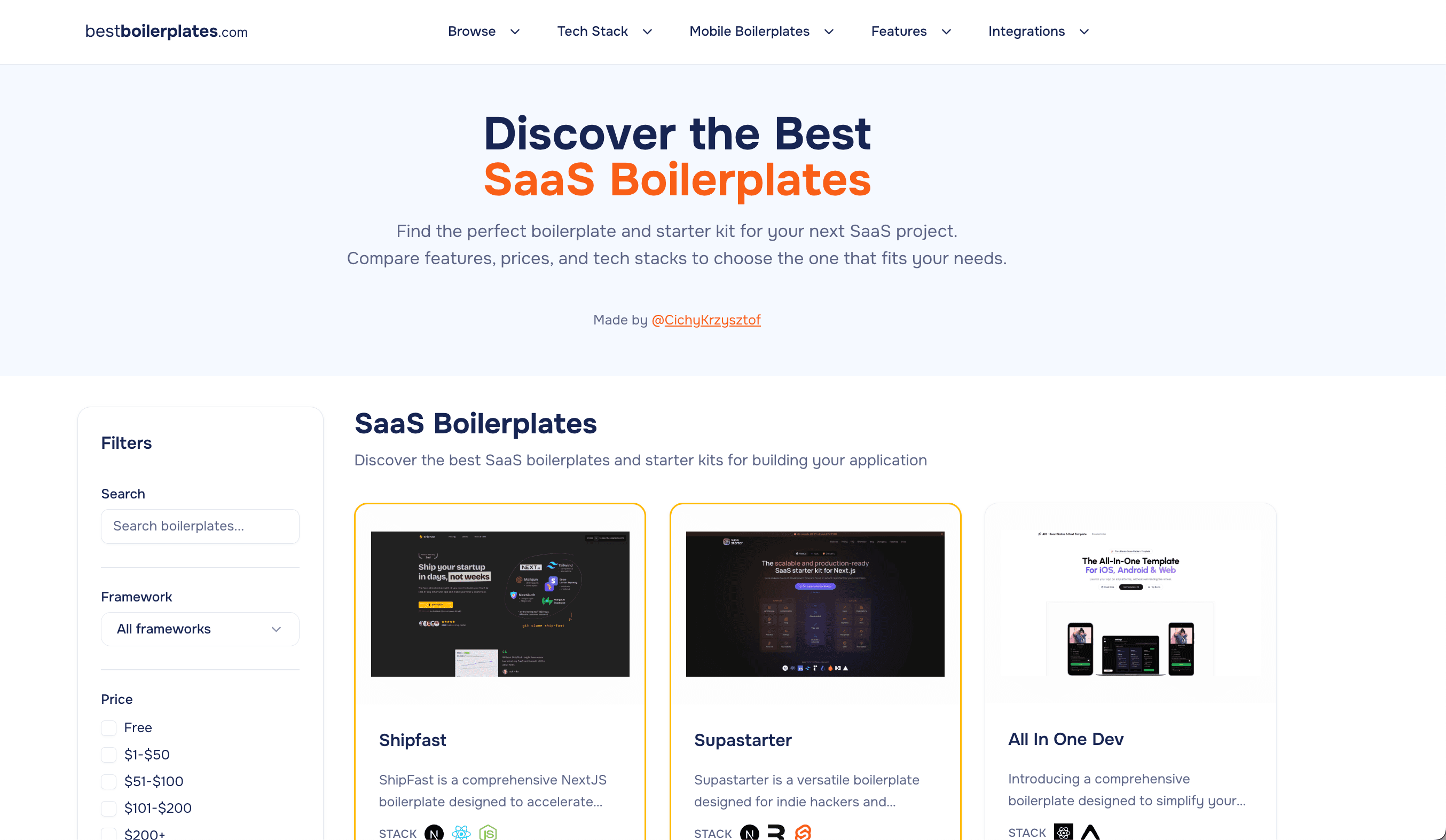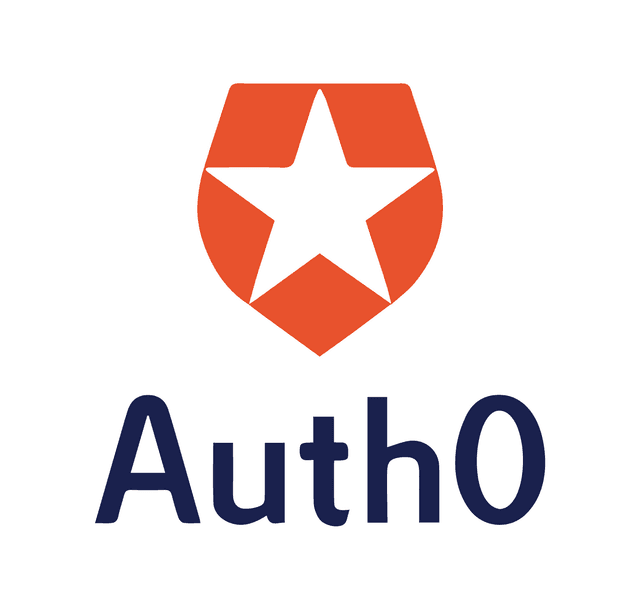Okta vs. Auth0 by Okta
Okta
Okta is an identity provider for organizations. It offers enterprise solutions for managing workforce and employee identities. It's HIPAA BAA and PCI compliant.
Auth0 by Okta
Auth0 is an identity and access management (IAM) platform designed to simplify authentication and authorization for applications. It provides a flexible solution that allows developers to implement secure login systems without having to build them from the ground up. Auth0 supports various authentication methods, including username-password credentials, social logins (like Google, Facebook, and GitHub), enterprise identity providers (such as Active Directory and SAML-based systems), and passwordless options. The platform is highly adaptable, offering over 30 software development kits (SDKs) that cater to a wide range of languages and frameworks—JavaScript, Python, .NET, iOS, Android, and more. This makes integration straightforward regardless of the tech stack. Beyond basic authentication, Auth0 offers advanced features like multi-factor authentication (MFA), single sign-on (SSO), and fine-grained authorization. These tools enable organizations to enforce complex access control polici...
Reviews
Reviews
Reviewed on 2/25/2025
Auth0 is Okta's B2C identity management solution. It's an all-in-one package, with social login, bot detection, UI components, anonymous users, single-sign-on, MFA etc. The free tier comes with 7,500 MAUs. That said, it's relatively expensive and 20,000 MAUs will cost you $1400/month.
| Item | Votes | Upvote |
|---|---|---|
| No pros yet, would you like to add one? | ||
| Item | Votes | Upvote |
|---|---|---|
| No cons yet, would you like to add one? | ||
| Item | Votes | Upvote |
|---|---|---|
| Offers passwordless, social, and multifactor auth | 1 | |
| Extensive documentation and community support | 1 | |
| Breach detection and brute-force protection | 1 |
| Item | Votes | Upvote |
|---|---|---|
| Free tier has restrictions on active users and features | 1 | |
| Higher tiers can be expensive | 1 |
Frequently Asked Questions
Auth0 by Okta is specifically designed for B2C (business to consumer) identity management, offering features such as social login, bot detection, UI components, anonymous users, single-sign-on, and multi-factor authentication (MFA). It also has a free tier for up to 7,500 monthly active users (MAUs). On the other hand, Okta is more focused on enterprise solutions for managing workforce and employee identities, making it more suitable for B2B (business to business) scenarios. Therefore, Auth0 by Okta is generally a better choice for B2C identity management.
Auth0 by Okta offers a free tier for up to 7,500 monthly active users (MAUs), making it a more cost-effective solution for small startups in need of B2C identity management. However, it can become relatively expensive as the number of users increases, with a cost of $1400 per month for 20,000 MAUs. Okta, being more enterprise-focused, does not offer a similarly generous free tier for B2C scenarios, making Auth0 by Okta the more cost-effective option for small startups initially.
Both Auth0 by Okta and Okta are highly scalable solutions, but they serve different purposes. Auth0 by Okta is designed to scale with consumer-facing applications, offering features like social login and multi-factor authentication. Okta, on the other hand, is tailored for enterprise environments, providing robust workforce and employee identity management. The scalability of each solution depends on the specific use case: Auth0 by Okta for B2C applications and Okta for enterprise B2B scenarios.
Okta is an identity provider for organizations, offering enterprise solutions for managing workforce and employee identities. It is HIPAA BAA and PCI compliant, ensuring a high level of security and regulatory compliance.
Okta provides robust identity management services, including single sign-on (SSO), multi-factor authentication (MFA), lifecycle management, and API access management. It is designed to integrate seamlessly with various applications and services, enhancing security and user experience.
Yes, Okta is compliant with several regulatory standards, including HIPAA BAA and PCI. This ensures that it meets stringent security and privacy requirements, making it suitable for use in highly regulated industries.
Okta is commonly used across various industries, including healthcare, finance, technology, education, and government. Its compliance with regulatory standards and robust security features make it a preferred choice for organizations that require stringent identity management solutions.
Auth0 by Okta is an identity and access management (IAM) platform designed to simplify authentication and authorization for applications. It provides a flexible solution that allows developers to implement secure login systems without having to build them from scratch. Auth0 supports various authentication methods, including username-password credentials, social logins, enterprise identity providers, and passwordless options.
Pros of Auth0 by Okta include offering passwordless, social, and multifactor authentication, extensive documentation and community support, and features like breach detection and brute-force protection. On the downside, the free tier has restrictions on active users and features, and higher tiers can be expensive.
Auth0 by Okta offers a wide range of features including multi-factor authentication (MFA), single sign-on (SSO), fine-grained authorization, user provisioning, directory synchronization, and support for various use cases such as B2B, B2C, and B2E. It also provides over 30 software development kits (SDKs) for different programming languages and frameworks.
Auth0 by Okta supports developers by providing extensive documentation, community support, and a developer-first focus. The platform's extensibility allows developers to customize authentication flows, implement rules for conditional access, and integrate third-party services, making it adaptable to various tech stacks.
Yes, Auth0 by Okta is designed with scalability in mind, making it suitable for both startups and large enterprises. It addresses enterprise needs through features like user provisioning, directory synchronization, and support for complex access control policies.
Related Content & Alternatives
- 2
 1.Amazon Cognito
1.Amazon CognitoThe biggest advantage of Cognito is that it's a part of the AWS ecosystem and integrates well with other AWS services. The free tier comes with 50,000 MAUs and the price for each additional MAU starts at $0.0055/month and goes down to as low as $0.0025/month as you scale to tens of millions of users. It integrated with four federated identity providers - your users can sign up with Facebook, Google, Apple and Amazon.
- 1
 2.Firebase
2.FirebaseGoogle's Firebase is an entire app development platform that's packed with features.It comes with storage, cloud functions, monitoring and, of course, user authentication. The free tier comes with 50,000 MAUs. Beyond that pricing start at $0.0055/MAU and goes down to as low as $0.0025/MAU as you scale to millions of users. Firebase authentication supports email and password auth, phone auth, magic links, two-factor authentication and social identity providers - mainly Google, Google Play Games, Facebook, Apple, Microsoft, Twitter, GitHub and OAuth access tokens.
- 1
 4.Clerk
4.ClerkClerk is a comprehensive user management and authentication platform designed to streamline how developers handle user accounts within web and mobile applications. It offers a suite of embeddable UI components—such as <SignIn/>, <SignUp/>, <UserButton/>, and <UserProfile/>—that integrate seamlessly into your application without redirecting users off-site. These components are fully customizable to match your brand, making the user experience cohesive and frictionless. Under the hood, Clerk provides a robust API and SDKs compatible with modern frameworks like Next.js, Remix, React, and Expo. It handles the entire authentication lifecycle, supporting multifactor authentication (MFA), session management, passwordless sign-in (via magic links or one-time passcodes), and traditional password-based methods with breach detection. The platform also integrates social sign-on (SSO) with over 20 providers, enabling quick user onboarding while adhering to security best practices. Clerk’s security posture includes SOC 2 Type 2 certification and CCPA compliance, with continuous third-party audits and penetration testing. Fraud prevention measures, like disposable email blocking and bot detection powered by machine learning, are built-in to reduce spam and abusive sign-ups. For B2B SaaS applications, Clerk provides advanced multi-tenancy features, enabling organization-based user management with custom roles, permissions, auto-join functionality based on email domains, and invitation systems—all accessible through both code and an admin dashboard. Developers benefit from rapid integration, significantly reducing the time spent on building authentication systems from scratch. Clerk acts as the single source of truth for user data and integrates seamlessly with popular backend services like Supabase, Firebase, and Convex. With free access for up to 10,000 monthly active users, it’s positioned as a scalable solution that grows with your application’s needs.
- 1
 5.Supabase
5.SupabaseSupabase is the open-source alternative to Firebase. Like Firebase, it's a complete app development platform with user authentication, cloud functions, APIs, Postgres database, storage, vector embeddings, and other features. Supabase projects come with PostgreSQL's policy engine for fine-grained user access rules. It has social login integrations with Google, Facebook, GitHub, Azure (Microsoft), Gitlab, Twitter, Discord, and many more. They offer a customizable authentication component for React. Phone login and MFA can be added through third-party SMS providers such as Twilio or Bird. The free tier comes with 50,000 monthly active users. The Pro plan, at $25/month, comes with 100,000 MAUs and $0.00325/MAU beyond that.
- 0
 6.Stytch
6.StytchStytch provides a suite of tools designed to simplify authentication, authorization, and security for web and mobile applications. If you're developing an app and need a way for users to log in—whether with passwords, passkeys, or entirely passwordless methods—Stytch offers APIs and SDKs that handle these complexities. Their focus is on making authentication seamless for both developers and end-users while ensuring high security standards. For businesses, particularly B2B SaaS companies, Stytch enables advanced features like multi-tenancy, role-based access control (RBAC), and single sign-on (SSO). They provide an embeddable admin portal, allowing enterprise customers to manage their own authentication configurations, organizational settings, and integrations with identity providers—without constant developer involvement. Stytch places a strong emphasis on scalability and flexibility. Their tools are designed to “just work” across a range of use cases, from simple consumer apps to complex enterprise platforms. Developers can choose how much of the authentication flow they want to control—using pre-built UI components for quick implementation or leveraging headless SDKs and backend APIs for a fully customized experience. Security and fraud prevention are also core to Stytch’s offering. They provide real-time bot detection, device-aware multi-factor authentication, and intelligent rate limiting to protect against credential stuffing and other forms of account abuse. Their infrastructure ensures that login codes and authentication requests are delivered reliably, even when SMS or email providers fail. Stytch supports a broad range of programming languages and frameworks, including Python, Node.js, Java, React, and iOS, making integration into existing tech stacks straightforward. Their platform is designed for developers who want to build secure, user-friendly authentication systems without reinventing the wheel.
- 0
 8.Ory
8.OryOry is an API-first identity manager. They offer authentication, analytics, access control, machine-to-machine authentication and more. They have SDKs for the major languages: - Dart - .NET - Elixir - Go - Java - JavaScript - PHP - Python - Ruby - Rust Unfortunately, they don't offer a free tier. Pricing starts at $29/month and includes 1,000 daily active users. Then it's $30 / 1,000 additional DAUs.
- 0
 9.Appwrite
9.AppwriteAppwrite is an open-source platform for building scalable applications. It comes with authentication, databases, storage, and functions. It's basically a complete development platform. They have an extremely generous free plan with 75,000 MAUs free of charge and their Pro plan is only $15/month. Appwrite offers email and password login, phone auth, magic links, email OTP, anonymous login, JWT login, SSR login, custom tokens, and two-factor authentication.
- 0
 10.Auth.js
10.Auth.jsFormerly known as NextAuth. It's is an open-source authentication library originally built for NextJS. Auth.js is free to use and comes with over 80 integrations for various third-party identity providers such as Google, Facebook, Auth0, Apple etc. You can use it with your own database if you choose to. It works with MySQL, Postgres, MSSQL and MongoDB. Auth.js is compatible with Next.js, SvelteKit and SolidStart as of March 2024.
- 0
 11.Keycloak
11.KeycloakKeycloak is an open source identity and access management solution. It supports Keycloak single-sign-on and OpenID Connect or SAML 2.0 Identity Providers (Google, Facebook, GitHub etc).
- 0
 12.Gluu Server
12.Gluu ServerGluu offers various authentication solutions based on open-source software. There is a self-hosted solution, a managed solution, and a free fully open-source solution based on the Linux Foundation Janssen Project.
- 0
 14.Lucia Auth
14.Lucia AuthLucia is an open source auth library that abstracts away the complexity of handling sessions. It works with any JS runtime - Node.js, Bun, Deno, Cloudflare Workers. It's also fully typed. It integrates with MongoDB. PostgreSQL, MySQL, SQLite, and with their respective ORMs and query builders.
- 0
 15.GoPasswordless
15.GoPasswordlessGoPasswordless is an authentication service and SDK that focuses on enabling passwordless authentication flows in web apps.
- 016.OTPLESS
Authenticate customers with WhatsApp, SMS, Email, Biometrics, and more, with a 98% conversion rate on signup and sign-in.
- 2
 4.Otta
4.OttaOtta is different from the other job boards in that it only shows you jobs that fit your profile. You set your preferences, such as location (or remote-only), desired salary, tech stack, role, visa status etc. Then, you get new jobs daily, all of which are selected to match your profile and are of high quality. You also get to see the company's average response time and response rate. You can apply with Otta or on the company's website.
- 1
 1.Best SaaS Boilerplates
1.Best SaaS BoilerplatesSaaSBoilerplates.dev is a curated directory that showcases a wide range of SaaS boilerplates, starter kits, and frameworks to help developers quickly launch their SaaS projects. The website features a carefully selected collection of tools and resources that cover various aspects of SaaS development, from authentication and payments to user management and deployment. Key Features 1. Extensive collection: SaaSBoilerplates.dev offers a comprehensive selection of SaaS boilerplates, catering to different frameworks, tech stacks, and development needs. 2. Curated by hand: The boilerplates are hand-picked and reviewed by a human to ensure quality, reliability, and relevance. No scraping, no AI-generated crap. 3. Detailed information: Each boilerplate listing includes a description, pricing, and key features to help readers make informed decisions. 4. Variety of use cases: The boilerplates cover a wide range of SaaS applications, including marketplaces, AI tools, landing pages, and more. Benefits 1. Time-saving: By leveraging pre-built boilerplates, developers can significantly reduce the time and effort required to set up the foundation of their SaaS project. 2. Cost-effective: Using boilerplates can help lower development costs by providing a solid starting point and reducing the need for custom development. 3. Scalability: Many boilerplates are designed with scalability in mind, making it easier to grow and expand the SaaS application as it gains traction. 4. Reduced technical debt: By using well-tested and maintained boilerplates, developers can minimise the risk of technical debt and ensure the long-term stability of their SaaS application. By leveraging the resources available on SaaSBoilerplates.dev, users can focus on building their core product features and bringing their SaaS ideas to life faster than ever before.
- 0
 5.Dynamiq
5.DynamiqDynamiq the operating platform for building, deploying, monitoring and fine-tuning generative AI applications. Key features: 🛠️ Workflows: Build GenAI workflows in a low-code interface to automate tasks at scale 🧠 Knowledge & RAG: Create custom RAG knowledge bases and deploy vector DBs in minutes 🤖 Agents Ops: Create custom LLM agents to solve complex task and connect them to your internal APIs 📈 Observability: Log all interactions, use large-scale LLM quality evaluations 🦺 Guardrails: Precise and reliable LLM outputs with pre-built validators, detection of sensitive content, and data leak prevention 📻 Fine-tuning: Fine-tune proprietary LLM models to make them your own Benefits: ⛑️ Air-gapped Solution: Dynamiq specializes in enabling clients that manage highly sensitive data to leverage LLMs while maintaining ironclad security thank to stringent security controls. 🕹️ Vendor-Agnostic: Through integration capabilities, our clients can build GenAI applications using a variety of models from providers such as OpenAI and have the flexibility to switch to other providers if needed. 🧲 All-In-One Solution: We cover the entire GenAI development process from ideation to deployment Use cases: 🏋️ AI Assistants: Equip your team with custom AI assistants that streamline tasks, enhance information access, and boost productivity 🧠 Knowledge Base: Build a dynamic AI knowledge base with our platform that streamlines decision-making, enhances productivity and allows employees to spend less time navigating through extensive company documents, files, and databases 🎢 Workflow Automations: Design powerful, no-code workflows that leverage your enterprise's knowledge to enhance content creation, CRM enrichment, and customer support.
- 0
 19.StartKit.AI
19.StartKit.AIStartKit.AI is a boilerplate designed to speed up the development of AI projects. It offers pre-built REST API routes for all common AI tasks: chat, images, long-form text, speech-to-text, text-to-speech, translations, and moderation. As well as more complex integrations, such as RAG, web-crawling, vector embeddings, and much more! It also comes with user management and API limit management features, along with fully detailed documentation covering all the provided code. Upon purchase, customers receive access to the complete StartKit.AI GitHub repository where they can download, customize, and receive updates on the full code base. 6 demo apps are included in the code base, providing examples on how to create your own ChatGPT clone, PDF analysis tool, blog-post creator, and more. The ideal starting off point for building your own app!
- 0
 6.BestBoilerplates.com
6.BestBoilerplates.comBestBoilerplates.com presents itself as a comprehensive directory and comparison engine for SaaS boilerplates and starter kits. On the site, you can browse a curated catalog of boilerplates from minimal starter-kits to full-blown, production-ready SaaS templates with authentication, payments, dashboards, multi-tenant support, blog/marketing modules and more. The main selling point is convenience: rather than manually researching dozens of boilerplate projects across GitHub or various marketplaces (each with different tech stacks, sets of built-in features, and price points), BestBoilerplates.com lets you filter by framework, features, integrations, price bracket and compare multiple options side-by-side. For startups, indie developers, small teams or solo founders — particularly those building a SaaS, MVP, web app or mobile app — this can be a huge time-saver. The idea is: skip the repetitive “core plumbing” (auth, billing, dashboard, basic UI, subscription flows, etc.), and get straight to developing your unique business logic or features. Strengths / What it does well - Wide selection & variety: The directory covers many tech stacks (Next.js, React, Node, Laravel, etc.) and project types (web apps, mobile apps, SaaS, MVPs, AI-powered apps, etc.), giving developers flexibility depending on what they build. - Easy comparison of features & price: Because boilerplates vary widely (some are minimal and free, others full-featured and paid), having a filter + comparison view helps in quickly narrowing down to those matching your budget and technical requirements. - Saves time — avoids reinventing the wheel: Many boilerplates on the site already take care of standard SaaS needs (authentication, user management, payments, dashboards, content/marketing pages, etc.), which means you don’t waste days or weeks wiring up basic infrastructure before building product-specific features. - Potential for faster MVP / launch: For early-stage ideas, or when you want to test a SaaS idea quickly, starting with a boilerplate can drastically reduce setup time and let you validate the core product sooner. This is arguably one of the biggest benefits for startups and solo developers. Verdict — Who Should Use It, and With What Expectations BestBoilerplates.com is a strong tool for developers or founders who want to ship fast: ideal if you’re building a SaaS MVP, launching a startup, or just want a solid foundation so you can focus on product features instead of boilerplate plumbing.
- 0
 47.NowKnow
47.NowKnowNowKnow helps you get market research done in hours instead of weeks. Ask questions, upload designs, and get thoughtful feedback from AI personas that represent your target audience. Key Features - Fast Results: Get detailed feedback within hours instead of waiting weeks for traditional surveys - Realistic Feedback: AI personas provide authentic responses based on real demographic profiles - Visual Testing: Upload images and designs to get feedback on everything from logos to interfaces - No Privacy Concerns: Since responses come from AI personas, there's no GDPR/CCPA compliance needed Benefits - Test More Ideas: Run multiple studies quickly and affordably - Iterate Freely: Adjust your questions and run new versions instantly - Target Precisely: Get feedback from specific demographic groups - Move Faster: Make informed decisions without long research delays Use Case Test everything from marketing messages to visual designs. Perfect for comparing UI layouts, A/B testing ads, getting feedback on logos, evaluating product mockups, and choosing the best social media content.
- 0
 59.OpenCulture
59.OpenCultureOpenCulture is a Slack app that enables anonymous Q&A sessions within organizations, fostering open communication and psychological safety. It allows team members to ask questions without fear of judgment while providing moderators the tools to maintain productive discussions. Key Features - Anonymous Question Submission: Users can easily submit questions using the /ask_ama command, with complete anonymity guaranteed - even from moderators - AI-Powered Moderation: Automatic content filtering to screen out inappropriate content and maintain professional discussions - Human Moderation Queue: Designated moderators can review and approve questions before they're posted publicly - Similar Question Detection: AI identifies duplicate questions to prevent redundancy and save leadership time answering repeated queries - Run team-wise AMAs: Flexible controls to enable Q&A sessions in any channel with configurable moderators and designated responders - Privacy-First Design: Built with security and anonymity as core principles, ensuring psychological safety for all participants Benefits - Increased Employee Engagement: Employees who feel heard are 4.6x more likely to perform their best work - Better Retention: Reduces turnover by giving employees a voice to express concerns - Enhanced Team Communication: Creates psychological safety that Google research shows is crucial for successful teams - Actionable Insights: Helps leadership understand organizational challenges and sentiment - Time Efficiency: Smart duplicate detection prevents repetitive questions and saves leadership time

